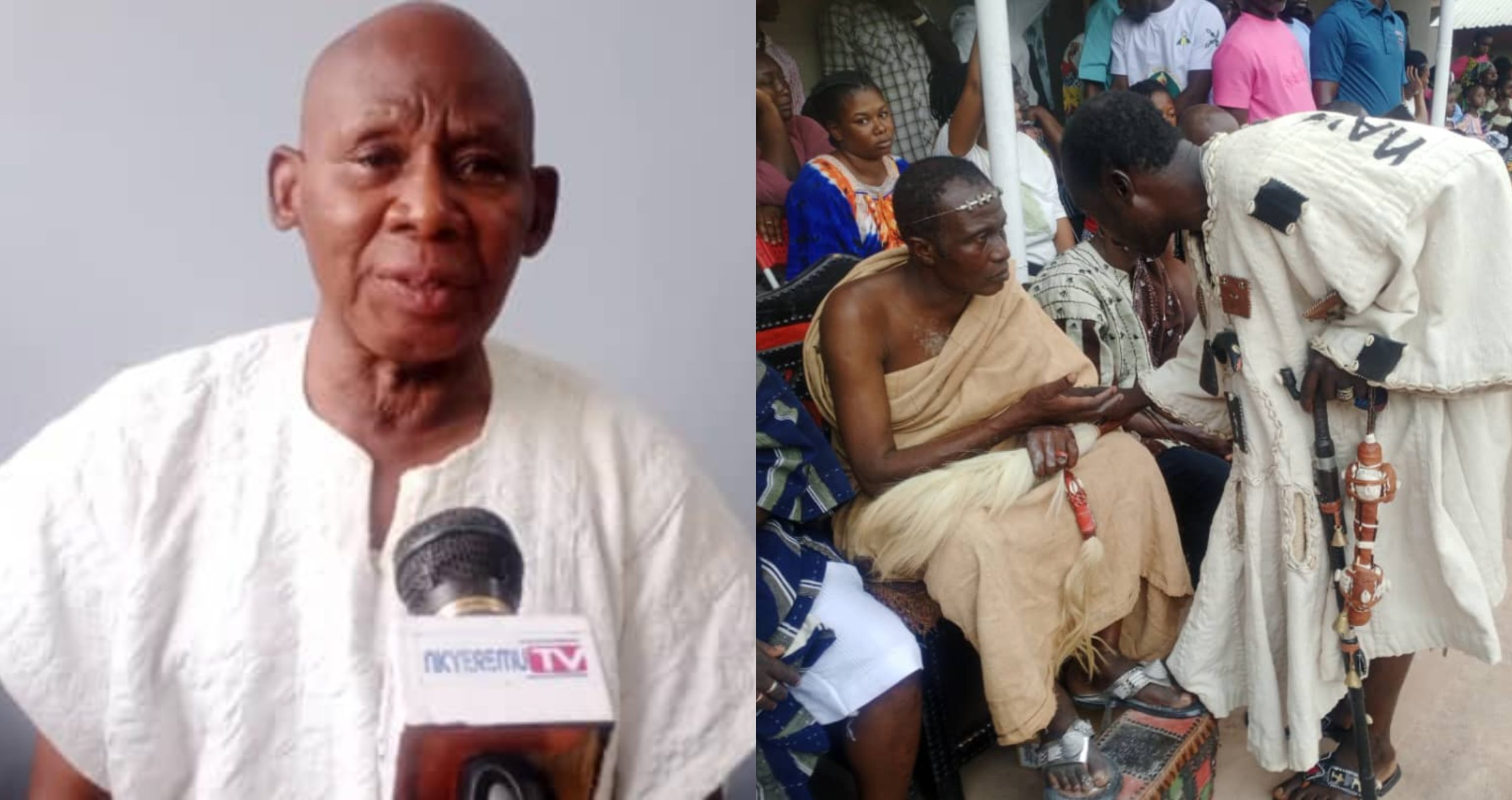
The Western cultural influence and the spread of Christianity and Islam have significantly altered the social fabric of African communities, especially in the Techiman Traditional Area. Nana Owusu Gyare, the Akwamuhene of Techiman, speaking to Nkyeremu News, discussed how the fear and respect for indigenous deities once played a vital role in maintaining order and reducing crime, including adultery and theft, within the community. Nana said this when Taa Mensah Bosomfour of the Techiaman traditional area was celebrating his yearly Kwafie Yam festival at his palace.
According to Nana Owusu Gyare, traditional African societies had deep-rooted systems of morality enforced by spiritual beliefs. The deities, such as Techiman, Taa Mensah, Buokyiriwa, Apape, and others, were believed to have the power to act instantly to punish wrongdoers. This spiritual accountability fostered a climate of fear that ensured community members adhered strictly to laws and customs.
“In the past, adultery was seen as a serious crime, and anyone who committed such offences would face severe consequences,” Nana Owusu Gyare explained. “Curses were raised, and the wrongdoer was compelled to confess or face dire repercussions in a short time. Such beliefs created a strong deterrent against immoral behaviour.”
However, with the advent of Western culture and the widespread adoption of Christianity and Islam, the traditional African belief systems and their practices have been overshadowed. The Akwamuhene believes this shift has contributed to a decline in respect for traditional spiritual powers and a corresponding rise in crime and immoral acts.
He stated, “The introduction of the Bible and the Quran has silenced the powers of the traditional deities. While these religions brought valuable elements such as education, healthcare, and broader worldviews, they have also caused the rich African cultural heritage to be forgotten.”
Nana Owusu Gyare lamented that the loss of traditional reverence has weakened the social fabric that once kept crime rates low. He stressed the importance of integrating the strengths of African culture with modern advancements to restore communal harmony and discipline.
“The fear and respect for the local deities helped to reduce crime, stealing, and adultery. Mentioning these deities to those involved in wrongdoing instilled fear and compelled them to speak the truth,” he said. “We must remember and revive this aspect of our culture if we are serious about curbing crime in our societies.”
While acknowledging the benefits brought by Western influence, including the establishment of schools and hospitals, the Akwamuhene emphasised that these advancements do not negate the value of indigenous traditions. He called for a balanced approach that embraces education and religion while honouring and revitalising Africa’s cultural heritage.
The conversation around the role of traditional beliefs in contemporary African societies is complex. Yet, Nana Owusu Gyare’s perspective highlights the potential of blending ancestral practices with modern systems to foster a safer, more respectful community.
As communities navigate the challenges of modernisation, the message from Techiman’s leadership underscores a broader sentiment across Ghana and Africa, a call to remember and cherish a culture that once served as a foundation for moral conduct and social order.
Story by Johnson Takyi—Nkyeremu News




